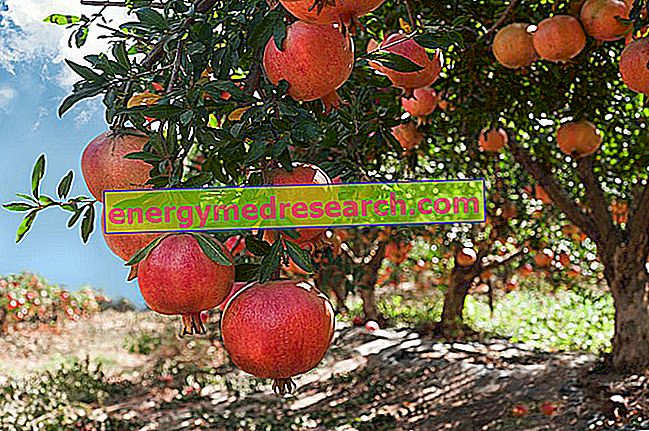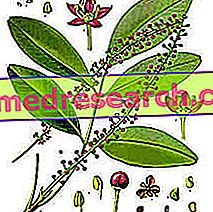Tonsillitis is an infectious disease that affects the tonsils (amygdales).
Tonsils are lymph gland members present in the nasopharynx. They have a shape that vaguely resembles an "almond" and perform the task of immune defense for the respiratory tract.

It is frequently associated with pharyngitis, rhinitis, laryngitis and sinusitis, but can also occur on its own.
Tonsillitis generates a profound inflammation and triggers pain, burning, swelling, difficulty in swallowing, speaking and sometimes even ventilating.
It represents a widespread discomfort among the global population, but the severity and danger depend on various factors: age, integrity of the immune system, health care, etc.
In subjects predisposed to relapse several times a year.
What to do
- People at risk of tonsillitis (relapsing, with a compromised immune system or performing risky activities) should adopt a preventive system (see Prevention).
- Since tonsillitis is not the only infectious disorder of the upper airways and oral cavity, it is quite important that when the first symptoms appear, consult a primary care physician for an accurate diagnosis. This is very important, since the severity of a pharyngitis is very different from that of a tonsillitis.
- IMPORTANT! It is necessary to exclude the possibility that tonsillitis is a complication of esophageal gastric reflux. The survey that will recommend the doctor will consist of a pH of 24 hours.
- In case of positive diagnosis, read "Remedies for Gastroesophageal Reflux Disease".
- If the tonsillitis is recurrent, sometimes it is necessary to carry out a microbiological analysis by taking a swab from the tonsils.
- At the manifestation of the first symptoms, waiting to go to the doctor, it is useful to apply anti-inflammatory drugs for topical use (disinfectant sprays), even several times during the day.
- Alternatively or in addition, it is possible to rinse the throat by gargle with natural antiseptic solutions (see Natural Remedies).
- If there are plaques (white patina that indicates a serious bacterial proliferation) the most common natural remedies are not particularly effective and it could be useful to use more powerful disinfectants.
- Total rest: let's not forget that tonsillitis can be caused by highly debilitating diseases. If neglected, it tends to worsen until a fever starts.
- If the pain is very strong, waiting for a medical prescription, it could be useful to take a systemic anti-inflammatory drug.
- In the presence of plaques, the doctor will almost certainly prescribe antibiotic drug therapy.
- Eat adequately, respecting the sensitivity to swallowing and taking into account the overall nutritional needs (antibiotic therapy, high inflammatory status, compromised immunity, etc.).
- Sometimes the doctor is able to manually remove most of the plates making disinfection more efficient and speeding up the treatment.
- Certain situations require more invasive medical interventions, but their relevance can only be established by the healthcare professional.
What NOT to do
- Do not seek medical attention and treat yourself. It is a wrong attitude, especially when the symptoms tend to get worse.
- Especially when the tonsillitis is recurrent, do not perform the investigation for gastroesophageal reflux disease.
- Neglecting mild symptoms; may be the beginning of a very serious episode.
- Do not disinfect the tonsils, especially when waiting for a diagnosis takes more than a day.
- If necessary, do not use more effective disinfection methods.
- Maintain an active lifestyle by neglecting rest; for example:
- Continue to practice sports.
- Continue to work in risky situations (in cold storage, collective catering kitchen, external interventions in the winter season, etc.).
- Smoking or breathing passive smoke: cigarette smoke, just like smog, can further irritate the mucous membranes of the throat, increasing pain.
- In the presence of an excessive inflammatory state, persist in not taking anti-inflammatory drugs when prescribed.
- In the presence of an acute infection, persist in not taking antibiotic drugs when prescribed.
- Take antibiotics without a medical indication or a preventive measure (during the very first symptoms of a trivial pharyngitis).
- Administer aspirin to children younger than 12 years. Increases the risk of side effects such as Reye's syndrome, liver dysfunction and brain changes.
- Eating incorrectly, choosing unsuitable foods that reduce appetite and / or that do not contain the right nutrients to support the immune system and intestinal bacterial flora (see What to Eat and What NOT to Eat below).
- Refuse tonsil medications and plaque removal; some people have difficulty retaining the vomiting impulse when the mucosa is stimulated near the velopendulo.
- Reject more invasive but essential medical interventions.
- Use anti-inflammatory drugs for a long time: a similar behavior does nothing but weaken the organism without intervening on the triggering cause.
What to eat
The tonsillitis diet should have the following characteristics:
- Tolerability: since this disease affects swallowing.
- Support of intestinal bacterial flora: necessary to support the immune system and compromised by antibiotic therapy.
- Richness of anti-inflammatory and antioxidant molecules.
- Support of the immune system.
Tolerability, relief and local benefit:
- Eat fresh food: the low temperature reduces pain (anesthetic function): ice lollies, granitas and ice creams can provide relief (albeit temporary).
- Take foods that hinder bacterial growth:
- The most suitable is lemon juice.
- Alcohol has the same function, but cannot be taken in the presence of drug therapy.
- Even the chili pepper has a good antibiotic function, but it increases the burning and inflammation of the tonsils.
- NON-pasteurized honey: this is an ancient natural remedy that has a more than relevant antibiotic role. Unfortunately it is not easy to find.
- Drink warm or warm milk with honey and a little brandy: it provides relief to the mucous membranes of inflamed tonsils.
Support of intestinal bacterial flora:
- Probiotic foods: enrich the intestinal bacterial flora and can improve bowel health. Some are: yogurt, buttermilk, kefir, tofu, tempeh, miso, kombucha, sauerkraut, gherkins, etc. It must be remembered that the acidic barrier of the stomach eliminates most of the microorganisms and for this purpose it can be useful to also take supplements and drugs.
- Prebiotic foods: are those containing soluble fiber and various carbohydrates (available or not available to humans) that nourish the physiological bacteria of the colon. They are found in: vegetables, fruits, cereals, legumes, potatoes.
Anti-inflammatory molecules:
- Omega 3: are eicosapentaenoic acid (EPA), docosahexaenoic (DHA) and alpha linolenic acid (ALA). They play an anti-inflammatory role. The first two are biologically very active and are found mainly in: Sardinian, mackerel, bonito, alaccia, herring, alletterato, ventresca of tuna, needlefish, algae, krill etc. The third is less active but constitutes a precursor of EPA; it is mainly contained in the fat fraction of certain foods of vegetable origin or in the oils of: soy, linseed, kiwi seeds, grape seeds, etc.
- Antioxidants:
- Vitaminics: the antioxidant vitamins are carotenoids (provitamin A), vitamin C and vitamin E. Carotenoids are contained in vegetables and red or orange fruits (apricots, peppers, melons, peaches, carrots, squash, tomatoes, etc.); they are also present in shellfish and milk. Vitamin C is typical of sour fruit and some vegetables (lemons, oranges, mandarins, grapefruit, kiwi, peppers, parsley, chicory, lettuce, tomatoes, cabbage, etc.). Vitamin E is available in the lipid portion of many seeds and related oils (wheat germ, maize germ, sesame, kiwi, grape seeds, etc.).
- Minerals: zinc and selenium. The first is mainly contained in: liver, meat, milk and derivatives, some bivalve molluscs (especially oysters). The second is contained above all in: meat, fishery products, egg yolk, milk and dairy products, fortified foods (potatoes, etc.).
- Polyphenols: simple phenols, flavonoids, tannins. They are very rich: vegetables (onion, garlic, citrus fruits, cherries, etc.), fruit and related seeds (pomegranate, grapes, berries, etc.), wine, oilseeds, coffee, tea, cocoa, legumes and whole grains, etc.
- Nutrients that support the immune system:
- Vitamin C or ascorbic acid: it is contained above all in the acidulous fruit and in the raw vegetables. In particular: peppers, lemon, orange, grapefruit, mandarancio, parsley, kiwi, lettuce, apple, chicory, cabbage, broccoli etc.
- Vitamin D or calciferol: it is mainly contained in: fish, fish oil and egg yolk.
- Magnesium: it is mainly contained in: oilseeds, cocoa, bran, vegetables and fruits.
- Iron: it is mainly contained in: meat, peach and egg yolk.
- Lysine and glycine amino acids: they are mainly contained in: meat, fishery products, cheeses and legumes (especially soya).
In the case of Gastroesophageal Reflux Disease, follow the appropriate diet.
What NOT to Eat
In addition to respecting the principles dedicated to a healthy and correct diet, avoid:
- Beverages containing dehydrating molecules: above all the caffeine of coffee and the ethyl alcohol of alcoholic beverages. Furthermore, alcohol interacts negatively with the metabolism of drugs, altering their action.
- Spicy foods: they are irritating to the mucous membranes (pepper, red pepper, curry etc.) and tend to worsen the burning symptom.
- Milk and dairy products in the presence of antibiotic therapy; can inactivate the drug.
Natural Cures and Remedies
- Natural antiseptic solutions for gargling:
- Warm water and salt (5 g of salt per 250 ml of water).
- Lemon juice (can be swallowed).
- Ethyl alcohol or high-alcohol drinks (whiskey or grappa) without ingesting them.
- Herbal medicine:
- Herbal teas based on:
- Chamomile ( Matricaria recutita L.): gives relief to the mucous membranes of the tonsils thanks to its anti-inflammatory, sedative, bactericidal and anti-fungal properties.
- Echinacea ( Echinacea angustifolia ): it has antiviral, immunostimulant, antibacterial, anti-inflammatory properties. It can be taken in the form of syrup or tablets).
- Propolis: antimicrobial activity, antifungal, antiviral (also in the form of tablets to suck).
- Spirea ( Spirea olmaria ): shows anti-inflammatory and calming effects (the extract contains antipyretic and analgesic salicylates).
- fumigations:
- Mint ( Mentha piperita ): it has balsamic, decongestant and anticatarrali properties.
- Bitter orange ( Citrus aurantium L. var. Amara): it has disinfectant, anti-inflammatory and decongestant characteristics.
- Eucalyptus ( Eucalyptus globulus ): it boasts the presence of anti-inflammatory, expectorant and balsamic molecules.
In the case of gastroesophageal reflux disease, follow the phytotherapeutic advice in the dedicated article.
Pharmacological care
- Light topical anti-inflammatory drugs based on NSAIDs, in the form of sprays and sweets:
- Flurbiprofen (eg Borocillina, Benactiv Gola, Tantum Verde Gola etc).
- Topical antibiotics (for bacterial tonsillitis):
- Fusafungina (eg Locabiotal).
- Powerful topical disinfectants (can facilitate plaque elimination):
- Rinse with diluted or pure oxygenated water.
- Application of iodine tincture.
- Antibiotics (for bacterial tonsillitis):
- Clarithromycin (eg Biaxin, Macladin).
- Amoxicillin (eg Augmentin).
- Telithromycin (eg Ketek).
- Antifungals for mycotic tonsillitis.
- Antiviral drugs for viral tonsillitis (generally associated with more serious pathological conditions).
- Powerful and systemic anti-inflammatories to be taken orally:
- Paracetamol (eg Tachipirina and Efferalgan).
- Ibuprofen (eg Brufen and Moment).
- Corticosteroids. They are indicated for mononucleosis-dependent tonsillitis:
- Cortisone (for example Cortone acetate).
- Prednisone (eg Deltacortene and Lodotra).
- Zinc tablets: particularly useful in case of tonsillitis associated with colds.
In the case of gastroesophageal reflux disease, take specific medications.
Prevention
- The prevention of tonsillitis affects all hygienic behavioral rules:
- Avoid contact with subjects suffering from tonsillitis (also limit the dialogues at close range).
- Avoid the exchange of towels, toothbrushes, crockery and cutlery between healthy and tonsillitis patients.
- Wash your hands to reduce the risk of infection.
- If a sink is not available, use disinfectant solutions such as amuchina.
- Limit thermal shocks, especially in the presence of sweating (for athletes, technical clothing is ideal).
- Maintain a suitable body temperature, avoiding intense cold.
- Carefully cover the neck and throat areas in winter.
Medical Treatments
- Manual removal of the plates and dressing with disinfectants: it can also be performed by the general practitioner.
- Surgical treatment: tonsillectomy to eliminate compromised tonsils to the point of recurrence many times a year. It should not be performed with infected tonsils.
- Aerosol: pharmacological spread for respiratory diseases, including tonsillitis. The active ingredient depends on the type of infection.
- Spa therapies: they are controversial. They are recommended especially in cases of fungal tonsillitis.



